The Khaptad National Park is a hidden treasure of Nepal with immense natural beauty and cultural importance. It is located in the far-western part of the country. The national park covers an area of 225 square kilometres and was established in 1984. The landscape of this park ranges from lush forests to rolling hills and peaceful meadows. Enriched with medicinal herbs, animals like the red panda, and over 270 species of birds, the park is replete with flora and fauna. This location is home to the meditation site of Khaptad Baba, the shrine that attracts pilgrims worldwide.
Location

Photo: Hari gurung77 / Wikimedia Commons
Khaptad National Park is located in the western region of Nepal. It stretches over four districts: Bajhang, Bajura, Achham and Doti.
Suggested Read: Explore Top Wildlife Sanctuaries In Nepal For An Adventurous Retreat
How To Reach Khaptad National Park
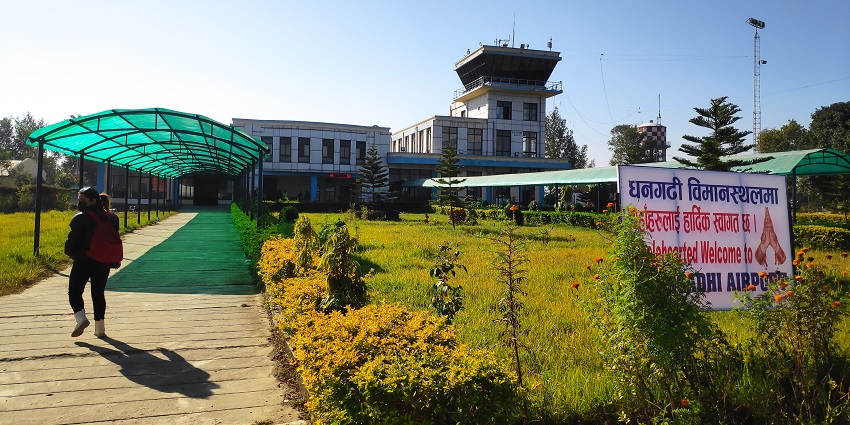
Photo: Gaurav Dhwaj Khadka / Wikimedia Commons
Khaptad National Park can be conveniently reached by air, bus, and rail, making it a popular choice for travellers arriving at this park:
By Air: The nearest airport to Khaptad National Park is the Dhangadhi Airport. From here, you can travel to the national park by taxi or bus.
By Bus: Local buses offer a budget-friendly, comfortable, and time-efficient way to travel from different locations to Khaptad National Park.
By Rail: Gorakhpur Junction Station is the closest to Khaptad National Park. From there, tourists can rent cars or travel by bus to the four districts and then to the park.
Places To Visit In And Around Khaptad National Park
Nepal and its surroundings offer a variety of attractions beyond its beautiful parks. Here’s a list of places to visit in and around Khaptad National Park:
1. Tribeni
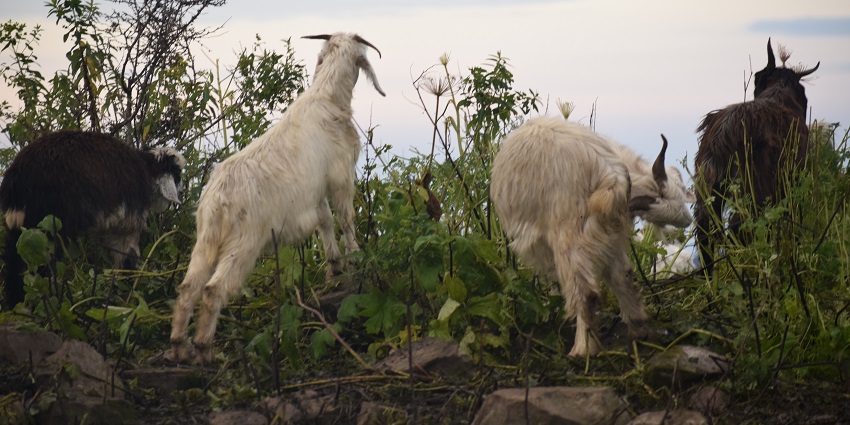
Photo: Dipak Nischal / Wikimedia Commons
Tribeni is located in the Dolpa district of Nepal. It is a holy and beautiful confluence of three rivers: Seti, Kali, and Trishuli. Tribeni is a religious place for Hindus as they believe in performing their traditional rites here and taking a bath through its waters to purify themselves spiritually. The settings in Tribeni are picturesque and breathtaking in terms of natural beauty, towering mountains, dense forests, and serene rivers. It is also the starting point for the beautiful trek to the holy Shey Phoksundo Lake.
Timings: 24*7
Entry Fee: Free
Suggested Read: Popular Places To Visit In Pokhara
2. Chandan Nath Temple
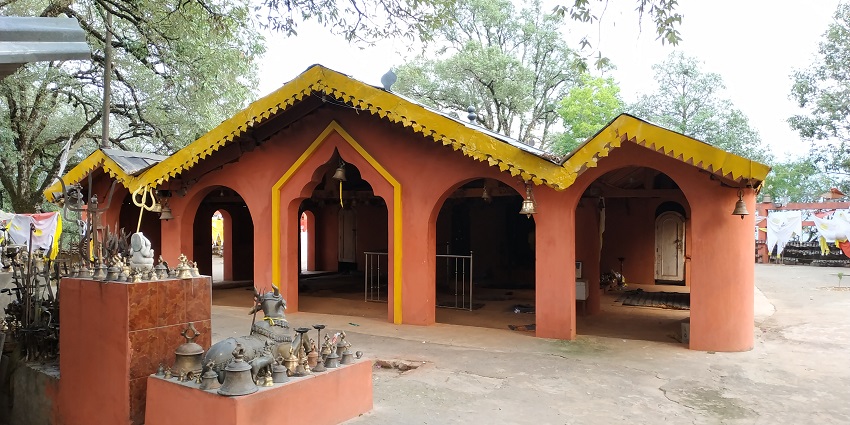
Photo: Nirajan pant / Wikimedia Commons / Image For Representation Only
The Chandan Nath Temple in Jumla is a famous Hindu temple in Nepal, where lord Chandan Nath blesses as an incarnation of lord Shiva. This ancient temple, steeped in local legend, has become an essential spiritual hub in the Karnali region. The temple, with the breathtaking beauty of the Himalayas, consists of traditional Nepali wood carving with a sacred environment. Pilgrims and tourists gather at the temple during most festival seasons. Devotees come to pray, receive blessings from the deities, and participate in local religious festivals.
Timings: 24*7
Entry Fee: Free
3. Talium
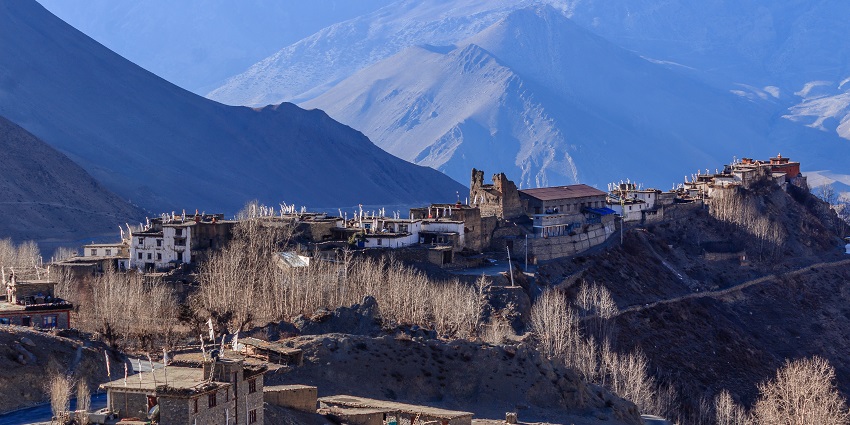
Photo: Bijay Chaurasia / Wikimedia Commons / Image For Representation Only
Talium is a stunning village in the far-western part of Nepal, recognised for its unspoiled natural beauty and cultural heritage. Talium lies in the Bajura District, interposed in the laps of nature, comprising dense forests, rolling hills, and the murmuring water of rivers. Impressive views of the Himalayan landscape surround it. The charming village is home to warm and inviting locals who follow their traditional way of life.
Timings: 24*7
Entry Fee: Free
Suggested Read: Guide To Royal Chitwan National Park Nepal
4. Badimalika Temple
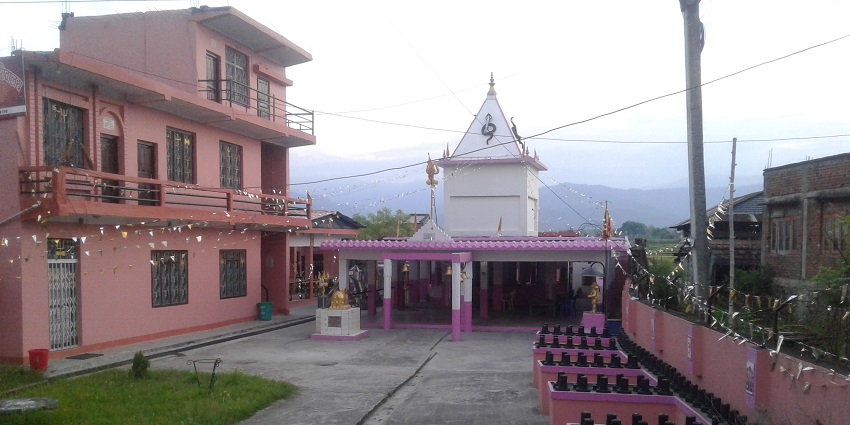
Photo: Bhkeshav7 / Wikimedia Commons / Image For Representation Only
Badimalika Temple is located in the Bajura District of remote western Nepal, perched on a shining hilltop at 4,200 metres. This temple is dedicated to Goddess Malika and attracts thousands of devotees, especially during the annual Badimalika festival. Pilgrims embark on a challenging journey through rugged terrains to seek the blessings of the goddess. In the shadow of the breathtaking Himalayas, this region unfolds panoramic views across the rolling green hills and dense forests to the snowy white caps on the horizon.
Timings: 24*7
Entry Fee: Free
Where To Stay
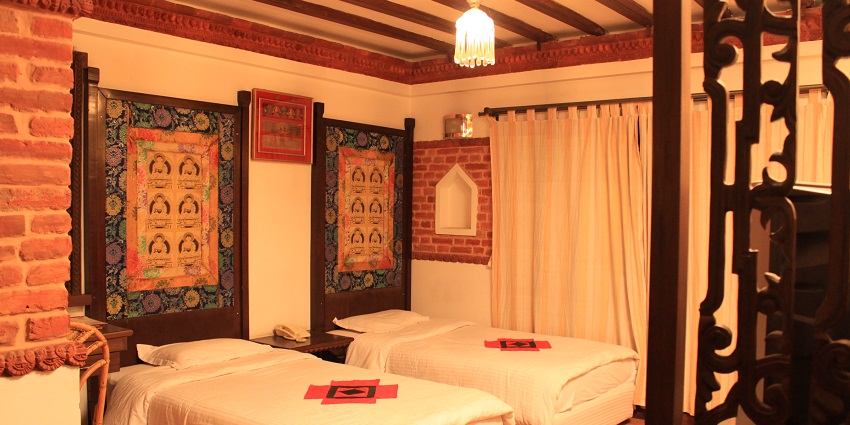
Photo: Mallaclassicroom / Wikimedia Commons / Image For Representation Only
Khaptad National Park has many nearby accommodations that suit different budgets and tastes. Some recommended places are Hotel Ghatal, Hotel Deep, and Spot On 638. For a good, hassle-free experience, ensure you book in advance. Consider proximity to the local attractions, dining options, and public transport.
Suggested Read: Adventure Sports In Nepal For Every Adrenaline Junkie
Where To Eat
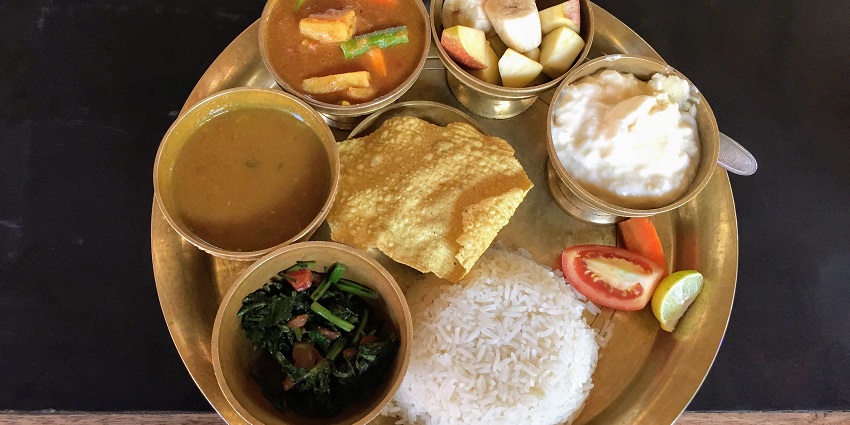
Photo: Subhashish Panigrahi / Wikimedia Commons
There are a pretty number of spots for dining in Nepal while you visit this national park. Enjoy savouring food at Nepali Rooftop Restaurant, Forest and Plate, and Jasper Restaurant. Visitors can taste local flavours by indulging in regional specialities.
Best Time To Visit
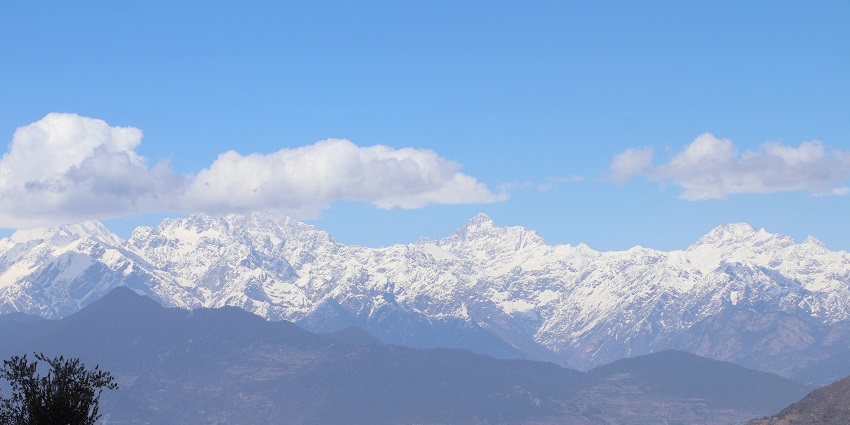
Photo: Joyboy420 / Wikimedia Commons
When we talk about the best with reference to Khaptad national park timing, it is the months from March to May. The weather is pleasant and cold during this time. This is the most suitable time to explore the national park and the tourist attractions around it.
Suggested Read: Top Things To Do In Nepal
Other Factors To Consider
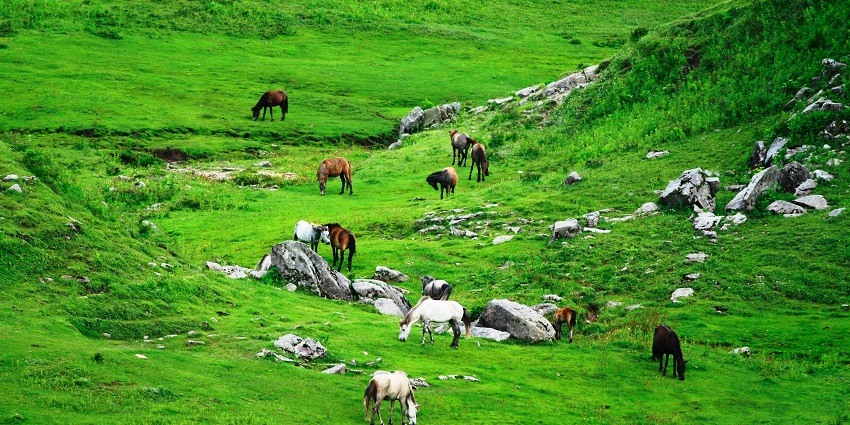
Photo: Rajanmaharjan / Wikimedia Commons
Khaptad National Park ticket prices are ₹100 for Nepalis, ₹500 for citizens from SAARC and ₹1500 for foreigners.
Tips For Travellers:
- To plan your visit, book in advance and pack accordingly with light, breathable clothing and essentials.
- Respect the environment around you when taking photos in Khaptad National Park.
- Do not litter inside the national park.
- Take guidance from locals while exploring nearby attractions.
- Use local transport, and be environmentally responsible.
Khaptad National Park is a natural escape for people looking for adventurous yet peaceful activities. This park gives visitors a first-hand opportunity to blend with the natural habitat around the surrounding area. Tourists can also enjoy exploring the places near the Khaptad National Park, which is surrounded by the beautiful landscapes of Nepal. Plan your dream getaway with TripXL and explore this stunning location.
Cover Photo: Anil Bhatta / Wikimedia Commons


 WhatsApp
WhatsApp
 Twitter
Twitter









